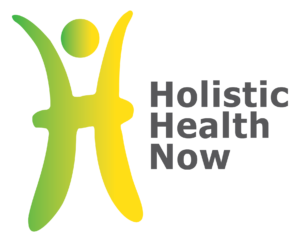
patient Education
A Specialized Approach for Optimal Patient Care: Navigating Medical Cannabis.
From the perspective of a Cannabinologist:
An individualized approach is essential for ensuring individual wellbeing, however, this is especially true when utilizing medical cannabis to treat a particular condition or illness(es). This article explores the significance of individualized profiling, attention to detail and thorough preparation when integrating medical cannabis (or hemp) into a patient’s treatment regimen, spoken through the lens of an experienced primary care physician with cannabinology experience.
Associated Receptors and the Endocannabinoid System:
The endocannabinoid system (ECS), is made up of a sophisticated network of receptors and neurotransmitters within the human body, and is at the heart of the medical cannabis debate. The maintenance of homeostasis and the control of various physiological processes depend heavily on the ECS system. The brain and immune system are the two main organs where cannabinoid receptors, or CB1, are found in the body, although they are found almost everywhere else in the body in one concentration or another. They react to both endogenous and exogenic cannabinoids, facilitating medical cannabis ‘therapeutic effects.
Safety and dosing considerations:
When utilizing or applying medical cannabis for medicinal purposes, accurate dosage is essential, otherwise one runs the risk of overwhelming the receptors and the body. The patient’s health problem(s), personal awareness, and the specific strain/cultivar of hemp or cannabis getting used, and their purity and concentration, should all be taken into account when determining intake. To minimize potential negative effects like stress or nausea, it’s a frequent dosing principle to start small and proceed slowly, or as Cannabis Nursing Pioneer, Ask Nurse Juhlzie, says, “Start Low and Go Slow”. Also, different administration methods, such as topical application, suppository, aerosol, vaporization and/or inhalation, may call for unique medication techniques.
In clinical cannabis treatments, safety is of the utmost importance. Medical cannabis can interact with hormones and medications in a variety of ways, worsening some conditions, despite usually being properly- tolerated. This emphasizes the necessity of professional supervision when determining medication interactions, threats and contraindications.
Doctor supervision is Highly Recommended:
When considering whether to include medical cannabis or hemp in a patient’s treatment plan, physician oversight and management of care is vitally important. The individualized details of each patient, their medical cannabis treatments and the current dosing must be understood by the entire healthcare team, not just a particular cannabinologist, otherwise providers may get the wrong impression from labs and misdiagnose or mischart what could be better described or understood. To make a measurable impact, providers must tailor consultations and recommendations to each individual, that way they can take into account, and determine, the best pathways for integration given each individual patient’s medical history, current state of wellness, and an accurate list of current medications. Additionally, Physician guidance ensures healthy integration into the patient’s continuity of care, optimizing treatment goals and subsequent outcomes, while minimizing risks and increasing medicinal benefits.
Advantages of Having a Clear Treatment Plan:
Developing a clear and comprehensive treatment program is essential for effectively utilizing medical cannabis to treat any one or more ailments. A properly-structured schedule outlines a patient’s precise goals, their preferred methods of administration, and precise outcomes so that baselines can be established and the history is properly charted. A successful treatment plan even incorporates standard follow-up appointments to check in, measure progress and potentially even modify the individual’s treatment plan on an as needed basis- steering away from the once a year exam. This specialized method enables individuals to record their responses to medical cannabis and make otherwise informed decisions about their continued care.
Clean Medicine:
The quality and purity of medical cannabis, often referred to as “clean medicine”, are pivotal to its therapeutic effectiveness and safety. Reliable sourcing, adherence to quality standards, and third-party testing for contaminants, toxins and concentrated terpenoids and cannabinoids are crucial considerations. Specialized cannabinologists help guide patients in choosing reputable sources and strains/cultivars that align with their medical needs.
In conclusion, medical cannabis therapy is a complex endeavor that requires a specialized approach for optimal patient attention. Understanding the ECS and associated receptors, implementing detailed baselines, ensuring protection through doctor supervision, crafting a distinct treatment plan, and accessing fresh medicine are all important components of this approach. When approached deliberately and with professional guidance, medical cannabis can be a useful tool in enhancing patient wellbeing while addressing a wide range of medical conditions.
- Enhanced Symptom Management
- Personalized Treatment Approach
- Reduced Reliance on Conventional Medications
- Improved Patient Engagement
- Broader Treatment Options
- Holistic Approach to Health
What Does Compassion Center Offer For Patient Education?
In order to inform patients about medical cannabis, Compassion Center’s Educational Programs are vitally important. Our activities for individual education include the following important elements:
Initial Evaluation: Patients of Compassion Center are empowered by the Compassion Center’s legendary Cannabinologists and Cannabis Nursing Specialists, evaluating each patient’s individual circumstances and needs. Once clear on the situation, providers then educate patients on the easist pathways to navigate their individual state programs while getting the most out of their program benefits and the cannabis plant in general. Upon patient acceptance, Compassion Center’s providers evaluate and interview or survey the patients on their level of experience, preferred method of administration and more to gain a deeper understanding of that patient’s particular level of understanding regarding the medical cannabis and hemp plant, dosing, selection and so forth, and then custom tailors an education program to bring that patient and their caregivers up to speed.
Informational Resources: Compassion Center gives people a wide range of technical tools regarding medical cannabis and hemp, including identifying and clarifying legal concerns, addressing possible advantages, risks, and modalities. Papers, brochures, websites, and educational materials catered to the needs of people are just a few of these solutions.
One-on-One Individualized Consultations: Some Compassion Center locations provide both in-person and virtual consultations with experienced professionals and health professionals, like pharmacists, cannabis nursing specialists or cannabinologists. Patients may ask questions, discuss their medical history and symptoms, and get specialized and individualized guidance on how to use and utilize cannabis during these consultations.
Educational Seminars and Workshops: Compassion Centers regularly sponsors and even produces workshops and seminars on a variety of medical cannabis-related topics, as well as a variety of other topics regarding plant-based medicine like psilocybin, including their management, dosing, and medicinal uses (Advice varies by jurisdiction). To join patients and share important details, these events may include host speakers, professional panels, and engaging demonstrations.
Support Groups and Peer Networking: Some Compassion Center locations offer medical cannabis patients the chance to join in on support groups and networking events. In an otherwise stable and encouraging environment, patients may share experiences, patient tips and advice, and give one another support.
Compassion Centers regularly provide online sources and webinars for patients who might not be able to attend in- people events in addition to online training initiatives. Individuals navigating medical cannabis treatment can quickly access information and support cheers to these online education opportunities.
Continued Education and Updates: The Compassion Center produces interprofessional continuing education (IPCE) with the Integrative Providers Association regarding plant-based medicine, and the evolution of research and clinical applications in accordance with the most recent studies, rules, and developments in the medical cannabis and psilocybin spaces. In order to make educated decisions about patient care, Compassion Center ensures that patients have access to the most up-to-date and appropriate information.
Compassion Center’s professionals play an important role in providing people with the information and tools they require to integrate medical cannabis and hemp into their treatment plans in a secure and efficient way. Compassion Center assists people in navigating the complex laws and policies regarding medical cannabis treatments, especially those provided in professional surroundings by empowering patients to make informed choices that best match their unique needs and preferences by providing comprehensive training initiatives.
Where All Does Compassion Center Work, And Are Medical Cannabis Recommendations Available Everywhere?
Nationally, depending on the particular professional service that you seek. 18 States for medical cannabis evaluations and recommendations. Compassion Center has been moving in the direction of total human wholeness since our founding in 2001, emerging as one of the first medical cannabis clinics to integrate restorative yoga and deep-tissue massage with all-natural pain management solutions for an improved outcome.
Do Patients Risk Anything By Trying Cannabis?
Physicians acknowledge that patients face potential risks when trying medical cannabis, and nothing less than education can fill that void. While medical cannabis can offer therapeutic benefits for various conditions, it’s not without its drawbacks and uncertainties. Here are some considerations:
Adverse Effects: Patients may experience adverse effects such as dizziness, dry mouth, impaired motor function, and cognitive impairment. Additionally, patients who are diagnosed with a certain variety of cancers should avoid THC as it acts as an inverse agonist, having adverse and sometimes toxic and detrimental effects. These effects can be particularly concerning for elderly patients or those with pre-existing medical conditions.
Psychiatric Effects: There is evidence to suggest that cannabis use, especially in susceptible individuals, may exacerbate or trigger psychiatric conditions such as anxiety, depression, psychosis, and even substance use disorders.
Cognitive Impairment: Chronic or heavy cannabis use, particularly in adolescents, may impact cognitive function and memory, potentially affecting academic or occupational performance and long-term brain development.
Dependency and Addiction: While less common than with other substances, some patients may develop dependency or addiction to cannabis, leading to withdrawal symptoms and difficulties discontinuing use.
Interactions with Medications: Cannabis can interact with certain medications, altering their efficacy or increasing the risk of adverse effects. Patients must inform their healthcare providers about their cannabis use to mitigate potential interactions.
Legal and Social Implications: Depending on jurisdiction, patients may face legal or social repercussions associated with medical cannabis use. This includes issues related to employment, driving under the influence, and access to certain healthcare services.
Quality and Safety Concerns: Patients may be exposed to contaminants or adulterants if using unregulated or illicit cannabis products. Ensuring access to clean and reliable medical cannabis products is crucial for patient safety.
In summary, while medical cannabis holds promise as a therapeutic option for many patients, it’s essential to approach its use cautiously and under medical supervision. Patients should be informed of the potential risks and benefits, and healthcare providers must carefully assess each patient’s individual circumstances and medical history before recommending medical cannabis therapy. Open communication, regular monitoring, and collaboration with healthcare providers and specialized physicians are vital to mitigate risks and optimize outcomes for patients considering medical cannabis.




